Results
-
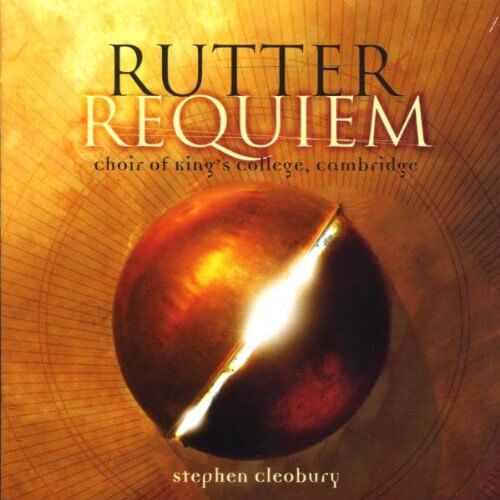 £29.50
£29.50Pie Jesu (From Requiem) - John Rutter - Adam Rutter
John Rutter's music is known across the world for its simplicity and memorable melodies. The 'Pie Jesu' from his requiem is certainly no exception. First performed in Dallas, Texas in 1985, the 6 movements completed Rutter's setting of the Roman Catholic Mass. The third movement (the 'Pie Jesu') is typical of the composer, featuring a strong melody line with subtle accompaniments. Now arranged for Solo Cornet by Adam Rutter, this slow melody allows the soloist to shine in one of the finest and most famous settings of the work to date. A great addition to any concert & soloists repertoire.
In Stock: Estimated dispatch 1-3 working days
-
 £29.50
£29.50Punchinellie - William Rimmer - Jonathan Bates
Kick start your programme with music from the Brass Band march kingaAof sorts! The opening bars of 'Punchinello" are amongst the most famous written in any march, however what follows them in this arrangement will certainly raise a few eyebrows and chuckles from your audience. The brilliance of William Rimmer descends into the comedy tune of the famous elephant (& your trombonists are let loose with the trunk calls!). An awesome, tongue in cheek arrangement that would suit both concerts & entertainments contests (watch out for the odd weasel popping up too!).
In Stock: Estimated dispatch 1-3 working days
-
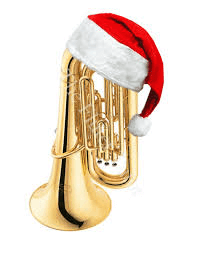 £29.50
£29.50Rockin' Around The Christmas Tree - Johnny Marks - Rob Bushnell
No Christmas concert would be complete without a solo item, and when given the chance to have a bit of fun at the same time, this piece is a must have for your programmes this year. Loosely based on the Mel & Kim version this light-hearted work allows the soloist the chance to have a bit of fun and with an optional cadenza in the middle, the entertainment value is high from start to finish. An optional Bb solo part is also included with the publication.
In Stock: Estimated dispatch 1-3 working days
-
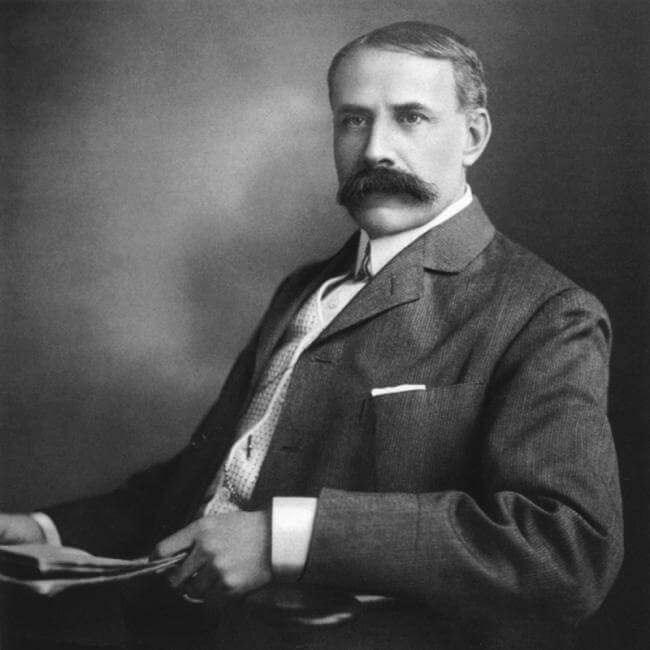 £24.50
£24.50Nimrod 'From Enigma Variations' - Elgar - Gavin Somerset
The 'Enigma Variations' by Elgar are musical portraits of his friends and family. The best of these 14 variations is by far, number 9 entitled 'Nimrod'. The variation has become a piece in its own right and is common at funerals and other solemn occasions. Remembrance Day in particular would not be complete without hearing the work and is always performed at the Cenotaph in London on this day. Now, this arrangement by Gavin Somerset remains faithful to the original and with careful scoring throughout, it allows bands of most standards to play this gorgeous piece and still obtain those hair raising moments the audiences have come to expect. A must for every bands library.
In Stock: Estimated dispatch 1-3 working days
-
 £29.50
£29.50The Spirit of Brass - Gavin Somerset
Commissioned for BrassFestUK 2017 & recorded by the Cory Band, the Spirit of Brass is an exciting, new energetic work that will fit perfectly into any concert, particularly as an opening item. With memorable themes, the composition takes its roots from that of John Williams' various Olympic themes that he has composed over the years. As well as this 'main version', there is also a youth/training band version of the work available which is more accessible to younger bands. The two versions work as standalone items, or can be performed side-by-side. A great new original piece for Brass Band.
In Stock: Estimated dispatch 1-3 working days
-
 £29.50
£29.50The Spirit of Brass - Youth Band - Gavin Somerset
Commissioned for BrassFestUK 2017 & recorded by the Cory Band, the Spirit of Brass is an exciting, new energetic work that will fit perfectly into any concert, particularly as an opening item. With memorable themes, the composition takes its roots from that of John Williams' various Olympic themes that he has composed over the years. As well as this training band version, there is also a full band version of the work available for mainstream bands. The two versions work as standalone items, or can be performed side-by-side. A great new original piece for Brass Band.
In Stock: Estimated dispatch 1-3 working days
-
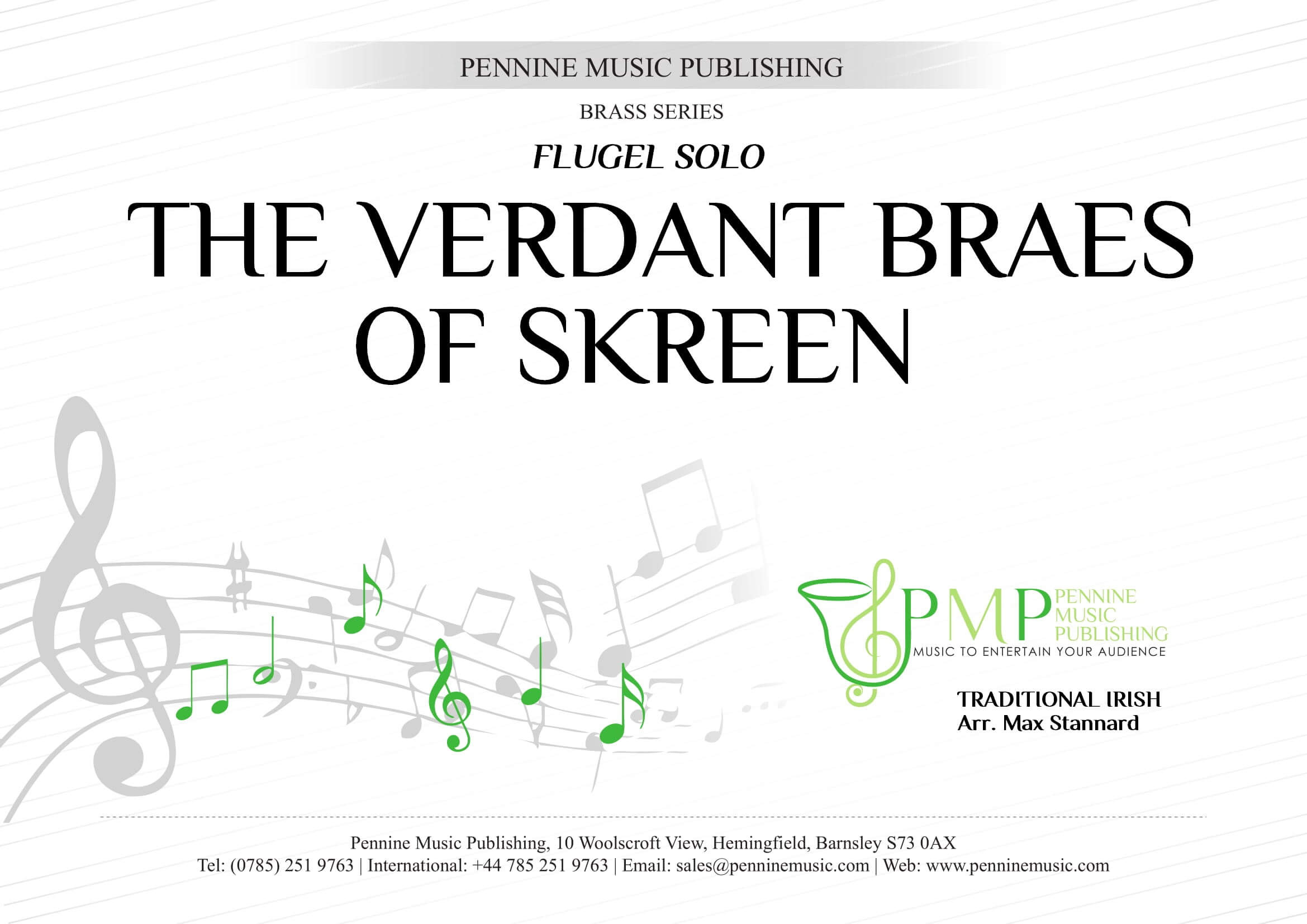 £24.50
£24.50The Verdant Braes Of Skreen - Traditional - Max Stannard
Ireland is renowned for having an almost endless list of folk tunes that have been passed down from generation to generation. Now, in a moving arrangement for the Flugel soloist, 'The Verdant Braes of Skreen' has been arranged by Max Stannard and is the perfect choice for bands and soloists looking to indulge in a little Irish culture. The title has been open to debate for some time, however it is believed that the 'Screen' refers to Ballinascreen in County Londonderry, Northern Ireland and a "Brae" is a steeped bank or a hillside. A lovely addition to any soloists repertoire.
In Stock: Estimated dispatch 1-3 working days
-
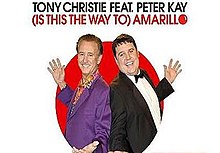 £29.50
£29.50(Is the the way to) Amarillo - Greenfield/Sedaka - Steven Hague
Brought back into the limelight with Peter Kay's release for Comic Relief, this fantastic arrangement by Steven Hague, playable by most levels of brass bands, faithfully recreates the comedy within the music and is perfect for any concert, and is a wonderful encore piece. 15% of the money from each sale on this piece is being donated to comic relief.
In Stock: Estimated dispatch 1-3 working days
-
£24.50
The Humming Chorus - Puccini - Alan Beaumont
This most beautiful piece from Puccini's opera Madame Butterfly has been wonderfully arranged for a brass band of any standard to perform to perfection. Simple and well structured, whether it is performed to a full concert hall, or on a bandstand in the park, audiences everywhere will appreciate this lovely piece.
In Stock: Estimated dispatch 1-3 working days
-
£29.50
Home Away From Home - Phil Coulter - Steven Hague
This gorgeous melody has been made famous by the virtuoso flautist James Galway, popularised on Classic FM and now arranged for brass band with a solo cornet taking the starring role. A perfect concert item, such a simple melody, but heart warming and playable by most bands.
In Stock: Estimated dispatch 1-3 working days
